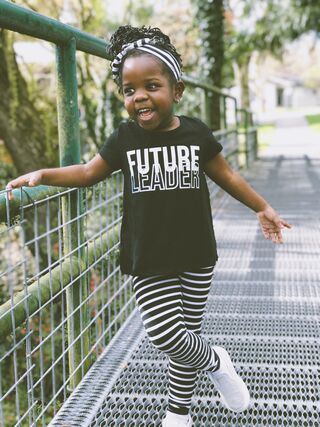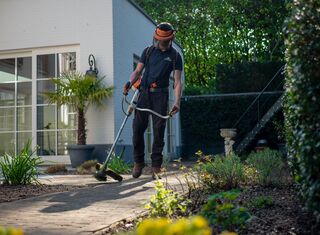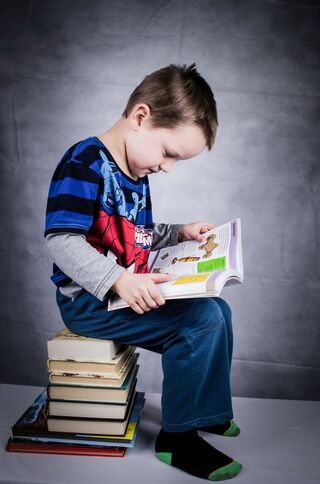Education
Why Those Without Kids Give a Hoot About Preschool
Part 1: The unexpected ways non-parents impact children’s lives.
Posted October 15, 2020

“Do you even like kids?”
When you don’t have children of your own, that question is as ubiquitous as it is odd, a subtle dig even when the word “even” is left out. In the village it takes to raise a child, the childless and childfree fill many crucial, yet often unexpected roles.
Take early childhood education, for example. In my home county in Oregon, Measure 26-214 Preschool for All is on the ballot. Recently, I attended a virtual house party to learn more about the measure, hosted by a couple who, like me, doesn’t have kids.
Turns out neither of the two presenters has children of their own, either. Same with half the attendees. Why on earth would all these non-parents give a hoot about preschool?
House party hosts Jodi and Chris Hummer are a high-octane married couple, both of whom turn fifty this year. Jodi maintains a thriving life and career transitions coaching practice, and Chris is President of a community health insurer.
Assuming Preschool for All passes, the Hummers’s only direct personal impact will be a slightly increased state income tax burden. So why did they support the measure and agree to host the event?
“Chris and I were motivated by our interest in greater equality and a desire for a better future for everyone,” says Jodi. “While we may not have children of our own, we see Preschool for All as an incredible opportunity to impact a large number of worthy children that deserve a chance at a better future and opportunities than their parents may have had.”
Megan Irwin, policy advisor to the Preschool for All campaign since 2018, is 37 and childfree. Her commitment to early childhood education springs from life as a little girl. She was reading by age 3 ½ and credits her own preschool experience with building a solid grounding in what it means to be a helper, part of a community, and curious about the world.

Her father worked as a landscaper. His customers included the Montessori school she ultimately attended and as well as the home of the woman who directed the school. He exchanged his labor for significantly reduced preschool tuition for Megan and her siblings. Otherwise, they would never have been able to attend.
“That’s not how educational access should work,” Megan says. “Every child deserves access to public funding that expands educational opportunities, especially for those growing up in economic circumstances similar to what I grew up in.”
Megan relies on both personal life experiences and economic benefits to the community when seeking voter’s support for public funding of preschool education.
“I ask folks to think about access they had or didn’t have to educational opportunities, how they benefitted from whatever services they got as a kid,” she says. “Doesn’t it track that every child deserves success? When voters reflect on how they benefitted, they see all people deserve the same opportunities.”
The economic benefits of preschool education on a community also help to persuade people. Megan says every dollar invested in preschool education returns up to $16 to the community. And the returns are long-lasting.

“The evidence is clear,” she says, “Students arrive at kindergarten better prepared to be a learner. Access to preschool results in higher graduation rates from high school, fewer teen pregnancies, less involvement with the criminal justice system, and improved overall health.”
According to the Heckman Institute, she adds, these positive outcomes ripple across generations. Investment in preschool “pays dividends in folks being employable,” says Megan, “and makes for more vibrant communities where folks follow the creative and work pursuits that make their communities hum.
“So many in public policy and helping professions dedicate their lives to education just because they care about kids,” says Megan. “I don’t have to have a child to care about yours, to care about the struggle of parenting and how to survive as a family. I want to do everything I can to make it a little bit easier. Nobody should have to live with that amount of stress. It’s bad for our brains, our bodies, and our quality of life.”
To date, 40 percent of the non-parents who attended the Hummer’s house party made donations to the Preschool for All campaign, far exceeding those of parents. In addition, up to $25,000 of all funds contributed will be matched by an anonymous childfree couple.
According to The Children’s Funding Project, measures on this year’s ballots in at least nine communities, if passed, will add over $1.3 billion to funds dedicated to children’s programs and services.

This week Judge Amy Coney Barrett’s seven children were on parade at the United States Supreme Court confirmation hearings, with GOP Senators incessantly referencing her exemplary motherhood role as if that earns her extra credit to sit on the nation’s highest court.
Justice (and mother and grandmother) Ruth Bader Ginsburg would surely summersault in her grave. I’m also sure non-mom Justices Sonia Sotomayor and Elena Kagan can’t help but notice the implied sleight, though both will certainly and politely keep mum. We’re well versed in doing so.
Yet in this divisive election year, wise campaigners and community thought leaders know inclusivity will make the difference between winning and losing. The less savvy will short change, even deride, what might be counterintuitive sources of enthusiastic support, both with help funding campaigns and as ballots are completed.
I offer a small shift in phrasing to that initial kid question that may help reveal shared interests: “How do other people’s children figure in your life?” Now that’s a juicy question many without progeny will relish answering.
References
Do you or someone you know actively support the lives of children in unexpected ways? Contact Kate directly if you'd like to be considered for future articles.




